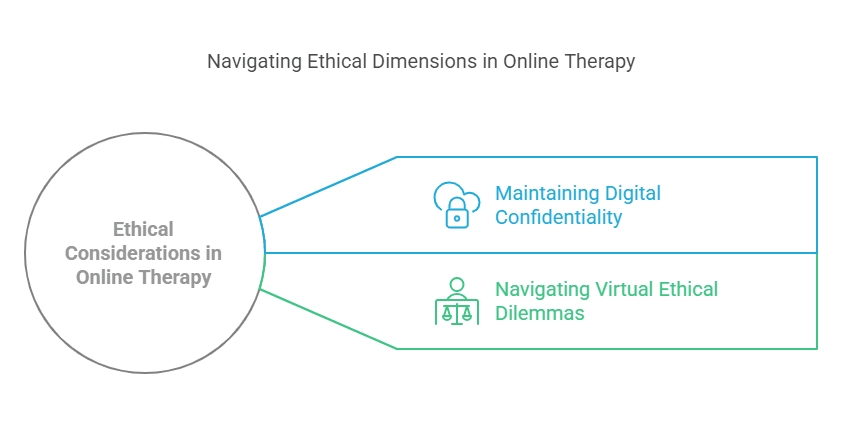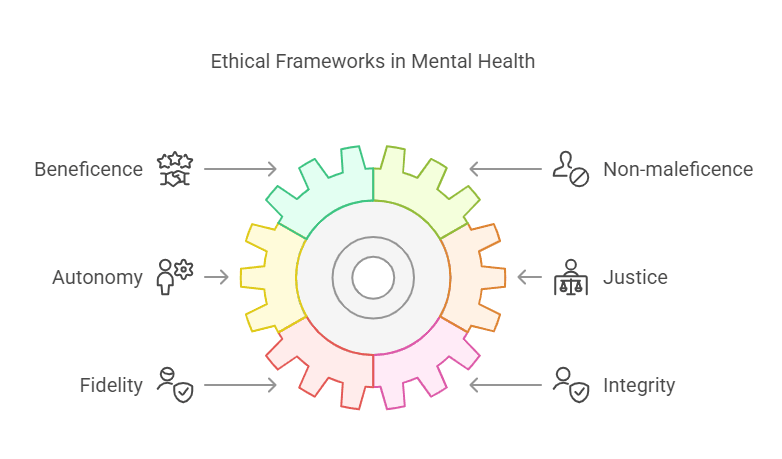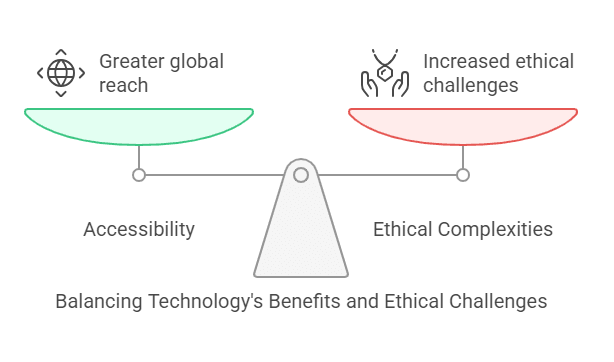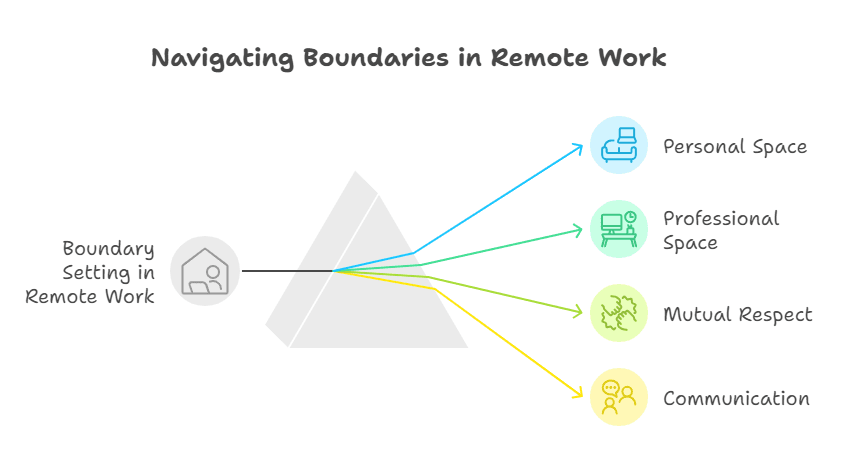The rise of online therapy has revolutionized mental health care, making it more accessible and convenient for clients worldwide. However, this shift from traditional face-to-face sessions to virtual platforms brings a unique set of ethical considerations that therapists must navigate carefully. In this article, we will explore the primary ethical concerns associated with online therapy, focusing on maintaining confidentiality digitally and navigating ethical dilemmas in virtual settings.

Understanding Ethical Frameworks in Online Therapy
Before delving into specific issues, it’s crucial to understand the broader ethical frameworks guiding mental health professionals. The American Psychological Association (APA) and other professional bodies provide guidelines that emphasize principles such as beneficence, non-maleficence, autonomy, justice, fidelity, and integrity. These principles remain relevant whether therapy is conducted in person or online.
Maintaining Confidentiality Digitally
Confidentiality is a cornerstone of therapeutic practice. Clients must trust that their personal information remains private for effective treatment to occur. However, ensuring confidentiality in an online environment presents distinct challenges:

1. Secure Communication Channels:
Therapists should use encrypted communication platforms designed specifically for telehealth services to prevent unauthorized access.
Popular video conferencing tools like Zoom offer HIPAA-compliant versions tailored for healthcare providers.
2. Data Protection Measures:
Implement robust cybersecurity measures such as firewalls and antivirus software on all devices used for conducting sessions.
Regularly update passwords and use two-factor authentication where possible.
3. Informed Consent:
Clearly explain how digital data will be stored and protected during initial consultations.
Obtain explicit consent from clients regarding electronic communication methods.
4. Record Keeping Practices:
Store session notes securely using encrypted cloud storage solutions rather than local hard drives susceptible to breaches or loss due to hardware failure.
5. Client Education:
Educate clients about potential risks associated with digital communications so they can make informed decisions about their participation method preferences (e.g., email vs secure messaging).
Navigating Ethical Dilemmas in Virtual Settings
While technology facilitates greater accessibility across geographical boundaries—a significant advantage—it also introduces new complexities when addressing certain situations ethically:

1. Cross-Jurisdictional Practice Issues:
Licensing laws vary by state/country; ensure compliance before offering services outside your licensed jurisdiction(s).
Familiarize yourself with legal requirements related specifically towards cross-border teletherapy practices within each region served by your clientele base—this includes understanding mandatory reporting obligations which may differ significantly between locations!
2 .Cultural Sensitivity & Competency Challenges :
Virtual interactions might limit non-verbal cues essential when working cross-culturally ; therefore practitioners need heightened awareness around cultural nuances impacting therapeutic rapport building processes !
3 .Emergency Situations Management :
Develop clear protocols handling emergencies remotely including establishing local emergency contacts prior commencing treatment plans alongside discussing contingency strategies addressing crises occurring off-hours without immediate physical intervention capabilities available nearby .
4 .Boundary Setting Concerns :

Blurring lines between personal/professional spaces potentially arises given home-based nature many remote work setups today thus necessitating firm boundary-setting discussions upfront ensuring mutual respect maintained throughout duration engagement period !
5 .Technology Reliability Issues :
Prepare backup plans anticipating technical difficulties disrupting scheduled appointments unexpectedly thereby minimizing disruptions continuity care delivery process overall .
Conclusion
As more individuals turn towards digital solutions seeking psychological support amidst evolving societal landscapes globally , embracing technological advancements responsibly becomes imperative safeguarding both practitioner-client relationships alike against unforeseen pitfalls inherent therein ! By adhering closely established ethical guidelines whilst proactively adapting best practices suited uniquely contextually driven needs encountered along way — clinicians stand poised successfully harness full potential offered via innovative modalities reshaping future landscape modern-day psychotherapy itself ultimately benefiting countless lives touched positively result thereof!




